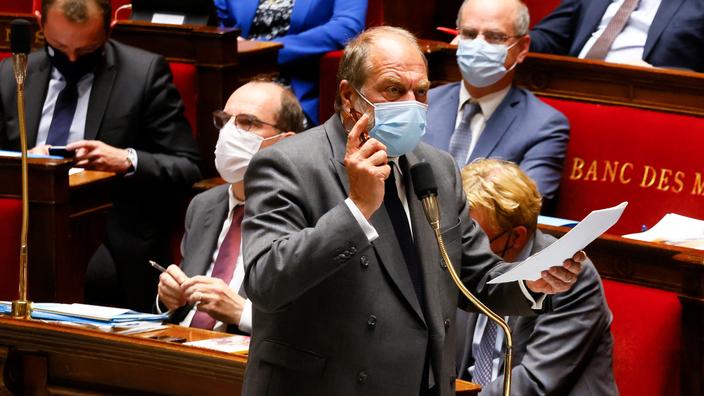Jean-Charles Brisard is president of the Terrorism Analysis Center (CAT).
To discover
Michel Houellebecq: "A civilization which legalizes euthanasia loses all rights to respect"
FIGAROVOX. - The anti-terrorism bill voted on Wednesday in the National Assembly provides for follow-up measures for detainees convicted of terrorism at the end of their sentence. While a similar bill was censored in August by the Constitutional Council, do you think this text will manage to circumvent it?
Jean-Charles BRISARD. -
This text was necessary, after the censure by the Constitutional Council of a bill adopted by the parliament, which aimed to strengthen the monitoring of detainees convicted of terrorism who have served their sentence. We know that more than 160 individuals convicted of terrorism will be released from prison after serving their sentence by 2024. These individuals potentially carry a significant risk of recidivism. The main thing is to be able to follow them both administratively and judicially. Prison today is not only an incubator for radical Islamism and terrorism, it is also increasingly a place in which terrorist attacks are being prepared. For three years, several prepared attacks in prison have been foiled, and attempted attacks have taken place in prison.
For three years, of the last nine perpetrators of acts of terrorism in France, none was known to the intelligence services.
Jean-Charles Brisard
Part of the text is devoted to intelligence, providing in particular for the use of artificial intelligence and algorithms to process data. Are such measures likely to considerably facilitate the fight against terrorism?
Since 1986, the French legislative arsenal has constantly adapted to the evolution of terrorism, to its physiognomy, its means and its methods. In this case, this law adapts to the reality of endogenous terrorism with which we have been confronted for three years. Things are changing: since 2013, we have suffered a massive wave of departures to the Syrian-Iraqi theater of operations. Several laws have aimed to prevent these departures, to hinder returns and above all to adapt to this increasingly individual and unpredictable threat. For three years, of the last nine perpetrators of acts of terrorism in France, none was known to the intelligence services. The last six perpetrators of attacks in France were unknown to the intelligence services. It means thatwe are faced with individuals extremely difficult to detect, even more difficult to neutralize and prevent in their passage to the act. Very concretely, with regard for example to the assassination of Samuel Paty, the author was in contact with several jihadists from a known terrorist organization, in particular in northeastern Syria. Thanks to these algorithms, we could have detected digital traces that would have allowed the services to detect this individual. Not necessarily to thwart the attack, but at least to detect the individual and apply intelligence techniques to him which,author was in contact with several jihadists of a known terrorist organization, in particular in northeastern Syria. Thanks to these algorithms, we could have detected digital traces that would have allowed the services to detect this individual. Not necessarily to thwart the attack, but at least to detect the individual and apply intelligence techniques to him which,author was in contact with several jihadists of a known terrorist organization, in particular in northeastern Syria. Thanks to these algorithms, we could have detected digital traces that would have allowed the services to detect this individual. Not necessarily to thwart the attack, but at least to detect the individual and apply intelligence techniques to him which,
in the end
, they might have made it possible to thwart this attack.
So adapting techniques to the threat is necessary.
The government and parliamentarians have shown great caution in drafting the law, to the point where in certain respects a form of self-censorship has been expressed, based on the interpretation of the decisions of the Constitutional Council.
Jean-Charles Brisard
The objective of this law is to perpetuate certain measures of the law on internal security and the fight against terrorism (Silt) of 2017, which already included state of emergency measures in common law. Does this generalization of exceptional provisions constitute a threat to public freedoms?
The impression that emerges after the parliamentary debate on this bill is quite the opposite. The government and parliamentarians have been very cautious in drafting the law, to the point where in some respects a form of self-censorship has been expressed, based on the government's interpretation of decisions of the Constitutional Council, and on the risk, real or supposed, of a new questioning, and therefore of a further delay, in the adoption of certain urgent measures, in particular those relating to the follow-up of terrorist detainees who have served their sentence.

